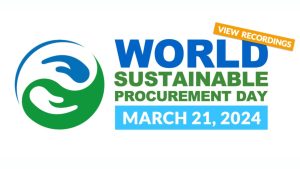In response to ANC President Jacob Zuma’s statement that the government tendering process should return to the old tender board system, SmartProcurement and independent experts are clear that this move will hamper service delivery, negate progress made in public sector procurement and still not be a foolproof mechanism to prevent fraud. Individual accountability within the current context offers a better solution.
“It is true that politicians must not be allowed to interfere with the government tender evaluations and adjudications. This became evident during various procurement process audits and projects. This is also true despite the fact that National Treasury has introduced a number of initiatives to ensure that the process is fair, equitable, transparent, competitive and cost-effective”, Tjaart van der Walt, an Independent Consultant and recognised expert on Tenders and Tendering, told SmartProcurement.
Accountability the Solution
The King Report suggests that “individuals or groups in a company who make decisions and take actions on specific issues need to be accountable for their decisions and actions. Mechanisms must exist and be effective to allow for accountability”. National Treasury has included this principle in their guide for accounting officers. It is also against this background that the National State Tender Board was repealed and allows accounting officers to procure in terms of the PFMA (Public Finance Management Act) or MFMA (Municipal Finance Management Act).
The PFMA, section 38.1.ii states that “the accounting officer must ensure that the department has and maintains an appropriate procurement and provisioning system which is fair, equitable, transparent, competitive and cost-effective”. Thus making the accounting officer and not the politician accountable for the decisions taken within his/her department.
Acquisition Management processes can combat fraud as they do in the Private Sector. Why are government officers not removed?
“Appointing specific bid committees is part of the current public sector procurement process. The principle to this decision was that no individual official is to be in a position to take a decision in isolation. It was therefore recommended that the accounting officer delegates his/her power to the Bid Adjudication Committee which should be cross-functional and consist of at least four senior officials, including the Chief Financial Officer (CFO) and a supply chain practitioner.”
“The system of cross-functional committees, with delegated powers, is working well in the private/semi-private sector and people are removed from their positions if an audit reveals irregularities or improper decision-making. Why then are government accounting officers not removed if the same is revealed within a department? ”
“Mr. Zuma is suggesting that government structures are corrupt and by moving the acquisition process to a tender board, which is also a government structure, is just to move the problem to another entity. This will thus not solve the problem within the system. Past experience with a National Tender Board resulted in delays with the adjudication of tenders, which, in turn, had a negative impact on service delivery. Because of the relative small size of the tender board it was easier to identify and manipulate decision makers”, Van der Walt continued.
“If Mr. Zuma wants to clean-up corruption in the public procurement process he should make sure that accounting officers are held accountable for actions within their departments. Corrupt officials should be removed from positions with power. Alternatively the procurement process could be outsourced to independent private organisations, or the chairperson’s position within adjudication committees should be allocated to a non-governmental official. This has worked well in certain State-Owned Enterprises where a private individual held the chairperson’s position”, Van der Walt concluded.
SmartProcurement attests to major strides having been made in the SA Public Sector procurement processes since the introduction of the Supply Chain Management Framework and in moving away from the tender board system. Many goverment departments have embarked on strategic sourcing programmes that harness state resources and individual brainpower to meet public objectives such as transformation, jobs, sustability, value for money etc.
“Tender boards are certainly not incorruptible and can be manipulated through various loopholes and will be a major bottleneck. The issue here relates to the ethical standards of the individuals involved and direct consequences to be faced, ” says Bernie van Niekerk, Editor Smartprocurement.
SmartProcurement is hosting a South Arican Bids and Tenders conference in July where this topic and other World Class developments will be discussed. More information here:
Contact our editor here if you would like to add to this debate or add yopur comments below..


























